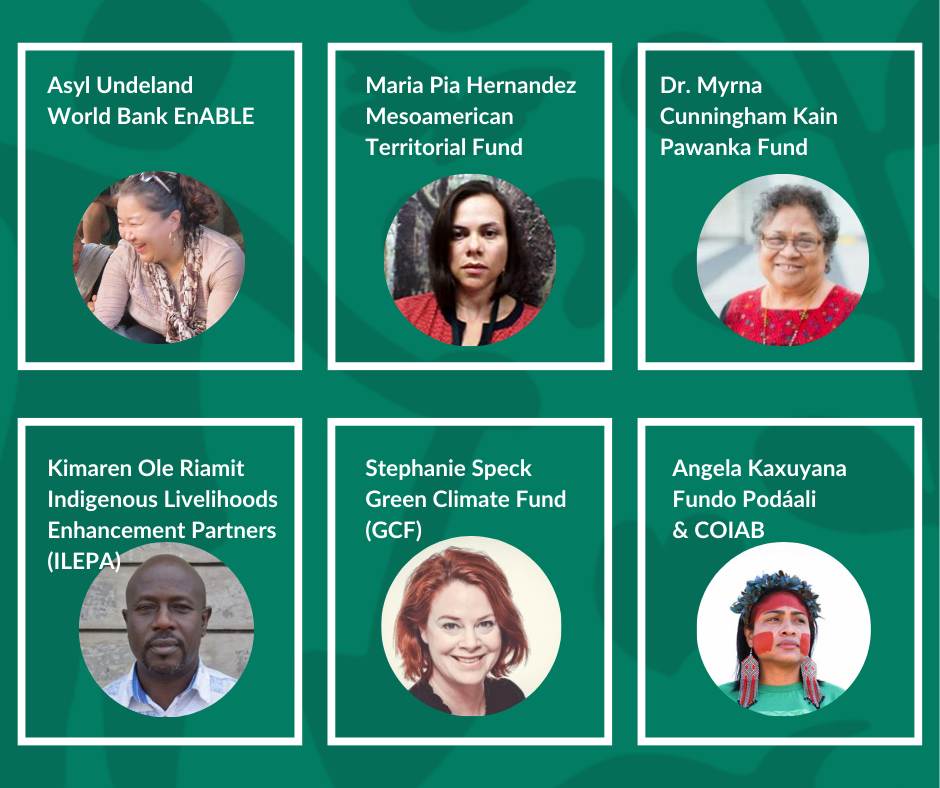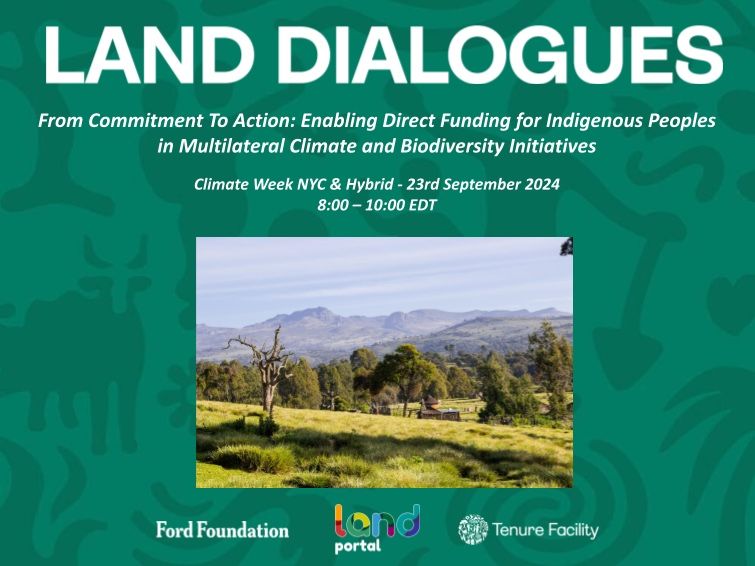Countries have increasingly turned to multilateral funds as a means to drive impactful change. These funds, created through collaborative efforts among multiple nations or organizations, have the potential to unleash massive amounts of resources to address pressing crises by supporting Indigenous Peoples, local communities, and Afro-descendant Peoples who steward and value the world’s primary forests. Despite their global commitments, these funds often struggle to deliver support swiftly enough to their intended recipients. As territorial funds proliferate within the climate finance ecosystem, a hybrid webinar was scheduled to examine the role of multilateral mechanisms in this evolving landscape.
As countries move away from fossil fuels and the overconsumption of natural resources, communities are increasingly being forced to relinquish their land to make way for the green transition. Indigenous Peoples and local communities are questioning whether multilateral funders can keep up with the demand for direct access and fit-for-purpose funding. Additionally, can these multilateral institutions adapt their systems to accommodate the diverse needs of communities on the frontlines, who govern vast territories of land with unique cultural inheritances? Amidst the crowded and complex global climate finance structure, how can multilaterals engage with territorial funds? The discussion aimed to explore the role of multilateral funds in shaping a pertinent and influential place within the modern financing ecosystem and whether they can be held accountable to their promises.

PANELISTS
- Asyl Undeland, World Bank EnABLE
- Stephanie Speck, Green Climate Fund
- Maria Pia Hernandez, Mesoamerican Territorial Fund
- Kimaren Ole Riamit, Indigenous Livelihoods Enhancement Partners (ILEPA)
- Dr. Myrna Cunningham Kain, Pawanka Fund
- Angela Kaxuyana, Fundo Podaali

